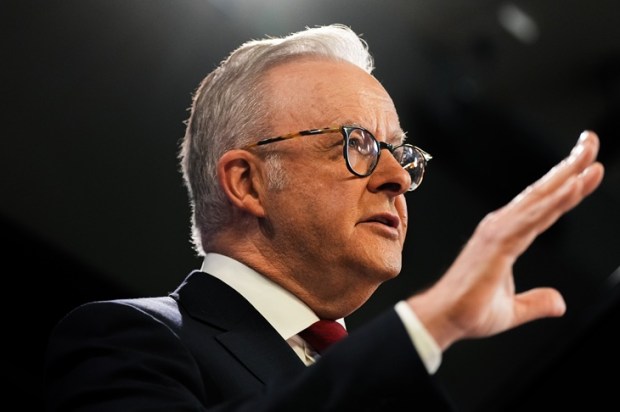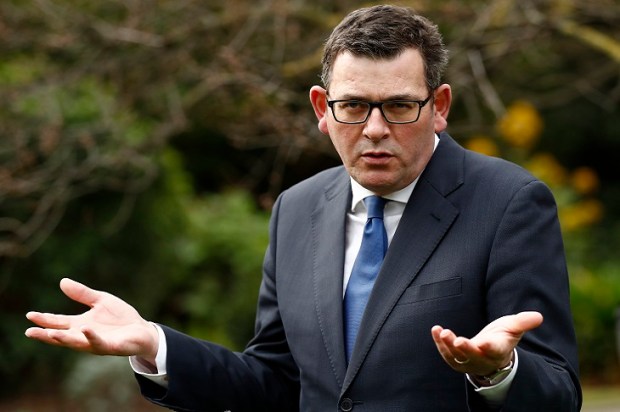My late father emigrated from Cyprus as a teenager. Unable to speak English he ended up in Katoomba. Within a few years of arriving, he was conscripted as a ‘New Australian’ (a now disused but still positive and inclusive descriptor for emigrants) into national service through the first National Service Scheme which operated between 1951 and 1959. ‘Nasho’ as it was known, was compulsory for Australian males aged 18 and hundreds of thousands of young men participated. The scheme survived until 1972.
My father hugely enjoyed Nasho. It turbocharged his assimilation into Australia, helped develop a sense of patriotism for his adopted country, taught him life skills, kept him fit and healthy and provided lasting friendships.
That was a different time and a different Australia. The reintroduction of national military service would now be politically and socially untenable, and not altogether useful.
Interestingly, national service is alive and kicking in many European countries, including progressive nations like Norway and Finland. Singapore also has a national service scheme. Tory MP Rishi Sunak announced a policy to reintroduce a re-imagined national service scheme for young people, but he lost the UK election. Sunak stated that the proposed program aimed to promote ‘a shared sense of purpose and national pride and would address the fragmentation in society’. Closer to home Tony Abbott has mused on the topic and from time to time the idea of compulsory national service emerges in the public debate but quickly gets put into the too-hard basket, like most other nation-building ideas which require any degree of political will and effort.
There are no easy solutions to dealing with growing domestic and geopolitical instability and fear of military engagement, social fragmentation, and the apparent lack of optimism and sense of purpose amongst our youth, but surely discussion of some type of national service scheme could at least be on the table. Many of the nations with such schemes are very successful ones.
Compulsory military service with the idea of preparing for military engagement is not a rational model for Australia. The recent calls for greater military expenditure and developing our capability for conflict don’t feature plans to build our stock of ground troop reserves. Further, mandatory service would prove politically untenable and there would be inevitable legislative and legal challenges to a conscription model. But there are opt-in or voluntary models that could be explored. Incentives in the form of skills and training, forgiveness of HECS debt, part work for the dole, travel and remote working opportunities are among the myriad carrots that could be dangled in front of young people. The focus would be on community services, nation-building and skills development. A national platform for the promotion of physical activity and fitness, civic responsibility and mutual respect and unity wouldn’t hurt anyone either.
Building social cohesiveness and tolerance and unifying young people has proven hugely challenging and many of our recent policies have impacted adversely on our collective national pride. Our national resilience and trust in institutions is also under fatigue. Covid sorely tested this. Volunteerism is on the wane with intakes into surf lifesaving clubs, rural fire services, and other volunteer organisations reducing in recent years, especially amongst young adults. A re-imagined model of national service would provide an opportunity to meet some of these challenges.
There are endless infrastructure and nation-building projects that need implementing. Many of these can be undertaken with unskilled but energetic personnel. The crippling cost of our overburdened health system could be mitigated by youth involvement in community actions such as non-specialised care for the aged and infirm. The opportunity for young Australians of diverse backgrounds to work together on worthy community projects would greatly improve social cohesion and produce a national ‘feel good’ factor.
One of the unfortunate consequences of the education revolution is to churn out millions of young Australians with tertiary qualifications of no vocational or practical utility. Academic standards have dropped, and the course curricula of many degrees do not promote practical thinking or the development of basic life skills. This is lamentable but we have an opportunity through a national service scheme to address this gap through teaching basic life skills and civic duties. The lack of imagination and will of our political classes will see us continue to lose ground in our international competitiveness. We can’t continue to drive unity and cohesiveness through empty political rhetoric or through our fading national sporting achievements.
The opportunities and benefits to be mined from an intelligently designed community service program are obvious. Of course, there are significant planning, logistic and short-term financial implications and these would be heavily exploited by opponents of any scheme, including those more motivated by preserving division and keeping our youth disaffected, pessimistic and hostile to their country and community. Cynicism and a sense of pessimism amongst the young will only hold us back and impede productivity and national contentment. National service won’t be a panacea for these big problems but might be one measure in the broader mix and is a better idea than any other I’ve recently heard offered by our politicians.
Andrew Christopher is a lawyer and writer and lives in Sydney

























